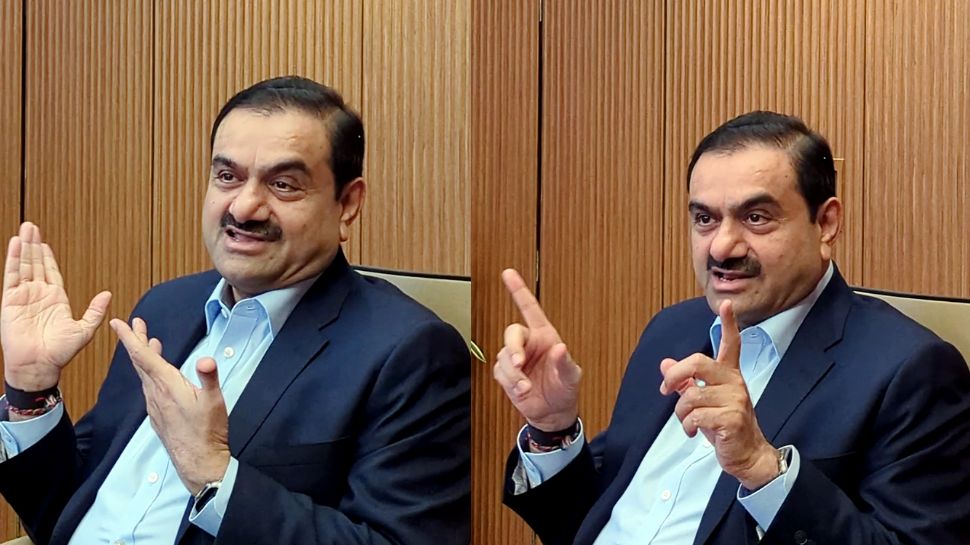How to Embrace Gautam Adani's Perspective on Personalized Work-Life Balance
Author and speaker on mindfulness in daily life.

Author and speaker on mindfulness in daily life.

Gautam Adani's perspective on work-life balance is deeply rooted in personal enjoyment and satisfaction. He states, "If you enjoy what you do, then you have a work-life balance." This highlights that balance is subjective and varies from person to person.
What brings joy and fulfillment to one individual may differ significantly from another. "Your work-life balance should not be imposed on me, and my work-life balance shouldn't be imposed on you," Adani emphasizes.
Adani suggests that the amount of time spent with family versus work is a personal choice. Some may find joy in spending four hours with family. Others might prefer eight hours.
He quips, "If someone spends eight hours and their spouse leaves, that's another story." This underscores the need for mutual happiness in relationships.
)
Finding passion in your work can significantly contribute to a balanced life. When your work aligns with your interests, it no longer feels like a chore. This alignment can lead to greater satisfaction and a sense of purpose.
It makes the hours spent working more fulfilling. This is a key element in achieving work-life harmony.
Balancing family time with a demanding career requires intentional effort. It involves setting aside dedicated time for loved ones, free from work distractions. This can be achieved by scheduling regular family activities.
It also includes being fully present during these moments. This approach ensures that both career and family life receive the attention they deserve.
Remote work has revolutionized the concept of work-life balance. It offers the flexibility to blend professional responsibilities with personal life. You can attend to personal needs without being tied to a traditional office setting.
This flexibility can lead to a more harmonious balance. It allows for a more personalized approach to managing time.
Setting realistic work hours is crucial, especially in a remote setting. It's about defining when you're "on the clock" and when you're not. Strengthening Your Work-Life Boundaries in 2025 offers strategies for setting clear work hours.
This helps prevent burnout. It ensures that personal time is respected and protected.

Identifying high-impact tasks is crucial for effective work-life integration. Focus on tasks that contribute most to your goals. This prioritization helps in managing time more efficiently.
It ensures that your efforts are directed where they matter most. This is a key principle highlighted in resources like Crafting Your Personal Wellness Plan.
Learning to say no is essential for maintaining balance. It's about recognizing your limits. It's also about not overcommitting.
Delegating tasks, both at work and home, can free up valuable time. This allows you to focus on priorities.
Technology can be a double-edged sword. Productivity apps can streamline tasks and save time when used wisely. Apps can help manage schedules, track progress, and automate routine tasks.
This efficiency can contribute to a better work-life balance. It frees up time for personal pursuits.
Creating tech-free zones is vital in today's digital age. Designate times and places where electronic devices are off-limits. This could be during meals or family time.
This practice helps reduce stress. It promotes genuine connection with loved ones.

Open communication with loved ones is vital. Discuss your needs and expectations regarding work and personal time. This fosters understanding and support.
It helps in finding a balance that works for everyone involved. It prevents misunderstandings and resentment.
Supporting each other's goals is key to mutual happiness. Encourage your loved ones in their pursuits. Be understanding of their commitments.
This mutual support creates a harmonious environment. It allows both individuals to thrive personally and professionally.
Recognizing signs of burnout is essential. These can include persistent fatigue, irritability, and decreased motivation. Stress indicators might be difficulty sleeping or physical symptoms like headaches.
Paying attention to these signs allows for early intervention. It prevents more serious issues.
Strategies for well-being include regular exercise, a healthy diet, and sufficient sleep. Mindfulness practices, like meditation, can also be beneficial. Finding Your Sweet Spot: Balancing Remote Work and Personal Time Like a Pro emphasizes the importance of self-care.
These practices contribute to better mental and physical health. They enhance your ability to manage stress.
Reflecting on personal goals and values is crucial. It helps in aligning your actions with what truly matters to you. This alignment leads to greater satisfaction.
It ensures that your work-life balance is meaningful. It's tailored to your individual needs.
Work-life balance is not a static achievement. It requires continuous assessment and adjustment. Regularly evaluate your priorities and make changes as needed.
This flexibility ensures that your approach remains effective. It adapts to your evolving circumstances.
Building a supportive environment is key. This involves seeking support from family, friends, and colleagues. It's about creating a culture that values well-being.
This support system is essential. It helps in navigating the challenges of work-life integration. "If it brings you happiness and the other person is also happy, then that's the true definition of work-life balance," Adani concludes.
Key Takeaways:
— in Productivity
— in Productivity
— in Stress Management
— in Wellness
— in Productivity